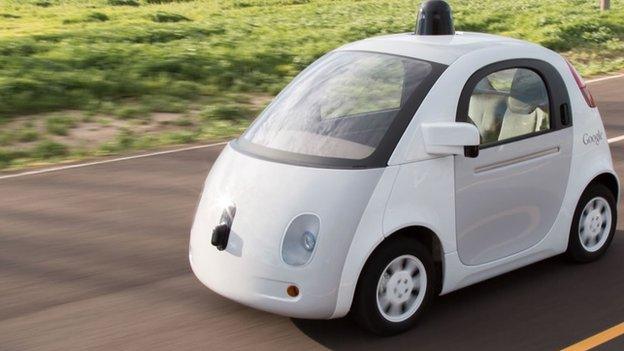Legal breakthrough for Google's self-driving car
- Published
- comments

The decision means Google's fully self-driving car pods may be tested on public roads soon
Google's self-driving car system could soon be given the same legal definition as a human driver, paving the way for vehicles without steering wheels or pedals.
The US National Highway Traffic Safety Administration (NHTSA) - which sets rules and regulations on America's roads - shared its thoughts in a letter to Google .
Until now, any car without a human driver would not be considered roadworthy.
However, in light of technological advancements, the NHTSA has changed its perspective.
"If no human occupant of the vehicle can actually drive the vehicle, it is more reasonable to identify the driver as whatever (as opposed to whoever) is doing the driving," it said.
"In this instance, an item of motor vehicle equipment, the Self-Driving System, is actually driving the vehicle."
Google boost
It means Google's self-driving pod, which has no typical in-car controls, is one crucial step closer to being allowed on public roads.
With the NHTSA's blessing, the car now fits the key criteria required to pass the Federal Motor Vehicle Safety Standards test.
It's the latest regulatory boost for Google after the US government announced in January a $4bn plan to create nationwide regulations for self-driving cars.
Secretary of Transportation Anthony Foxx said the initiative would provide consistency between states.
"We are taking great care to embrace innovations that can boost safety and improve efficiency on our roadways," he added.
"Our interpretation that the self-driving computer system of a car could, in fact, be a driver is significant.
"But the burden remains on self-driving car manufacturers to prove that their vehicles meet rigorous federal safety standards."
It followed an announcement by the Californian Department of Motor Vehicles (DMV) that said cars absolutely did need a driver - a ruling Google described as "perplexing".
Follow Dave Lee and
- Published2 October 2015